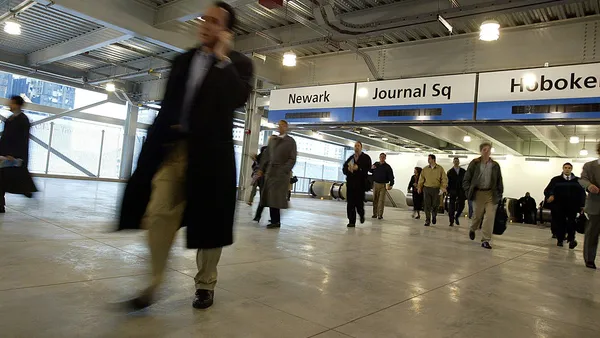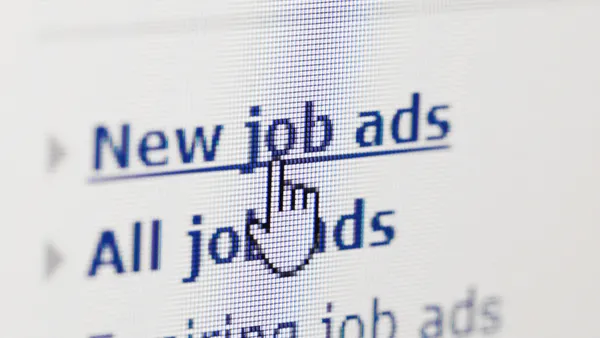Dive Brief:
- The percentage of CFOs, CEOs and other executives who said they are optimistic about the U.S. economy in the year ahead fell to 19% from 75% a year ago, the lowest percentage recorded since about 2010 when the country was just emerging from a recession, according to a JPMorgan Chase survey of 1,500 midsize business leaders.
- Respondents evidenced even dimmer views of the global economy, with only 9% optimistic about worldwide prospects, down from 53% a year ago. Meanwhile, 71% cited higher costs and inflation as their top challenge, with eight in 10 saying they are likely to continue increasing prices to mitigate costs even as they were slightly more sanguine about their own company’s prospects.
- “While it’s surprising to see how drastically sentiment has shifted, it is important to note that business leaders are still mostly upbeat when it comes to their companies and areas that they can more directly control,” Ginger Chambless, head of research, JPMorgan Chase Commercial Banking, said in a statement.
Dive Insight:
Signs of a souring economic outlook are piling up in financial executives’ inboxes. The JPMorgan survey released this week dovetails with fresh indications Tuesday of plummeting U.S. consumer confidence.
“The Expectations Index continued its recent downward trajectory — falling to its lowest point in nearly a decade,” Lynn Franco, senior director of economic indicators and surveys at the Conference Board, said in a statement. “Consumers' grimmer outlook was driven by increasing concerns about inflation, in particular rising gas and food prices. Expectations have now fallen well below a reading of 80, suggesting weaker growth in the second half of 2022 as well as growing risk of recession by year end."
There are some signs that CFO strategies are already adjusting to the downshifting economy.
For instance, 35% of CFOs think now is a good time to take on greater risk, down from 47% of CFOs during the first quarter, marking the second lowest level of risk appetite since 2015, according to a Deloitte survey.
A Grant Thornton survey released last month found a slow-down in investment plans for environmental, social and governance (ESG) initiatives, with just 31% of CFOs surveyed saying they expect to increase their ESG investments. The finding prompted a warning from Marjorie Whittaker, a managing director of ESG & Sustainability at Grant Thornton, that finance chiefs should not allow their focus to slip as conditions tighten. The regulatory and stakeholder pressures for ESG are not “going away,” she said.
JPMorgan’s findings also showed company capital spending plans and capital needs moderated in the last six months. But even as they face the intensifying challenges of decades high inflation and soaring interest rates, the survey found more than eight in 10 business leaders expect to increase or maintain capital spending during the next year, JPMorgan’s Chambless wrote in an emailed statement.
“When you consider that 83% of business leaders also expect to grow their business over the next year, and they tend to take a long-term view of capital spending, we wouldn’t expect material capital spending cuts in the rest of the year,” she wrote. Still, she said there are other actions to watch for as the year progresses that could signal companies are moving into retrenchment mode.
“Companies might start to make cuts in spending, particularly for areas like advertising, and in some cases, job cuts. I would look to the labor market for any signs of retrenchment, such as slack in the market or upticks in the unemployment rate and jobless claims,” she said, adding that the labor market is currently still “very tight.”
JPMorgan Chase’s Business Leaders Outlook Pulse survey was conducted from May 25 through June 10.















